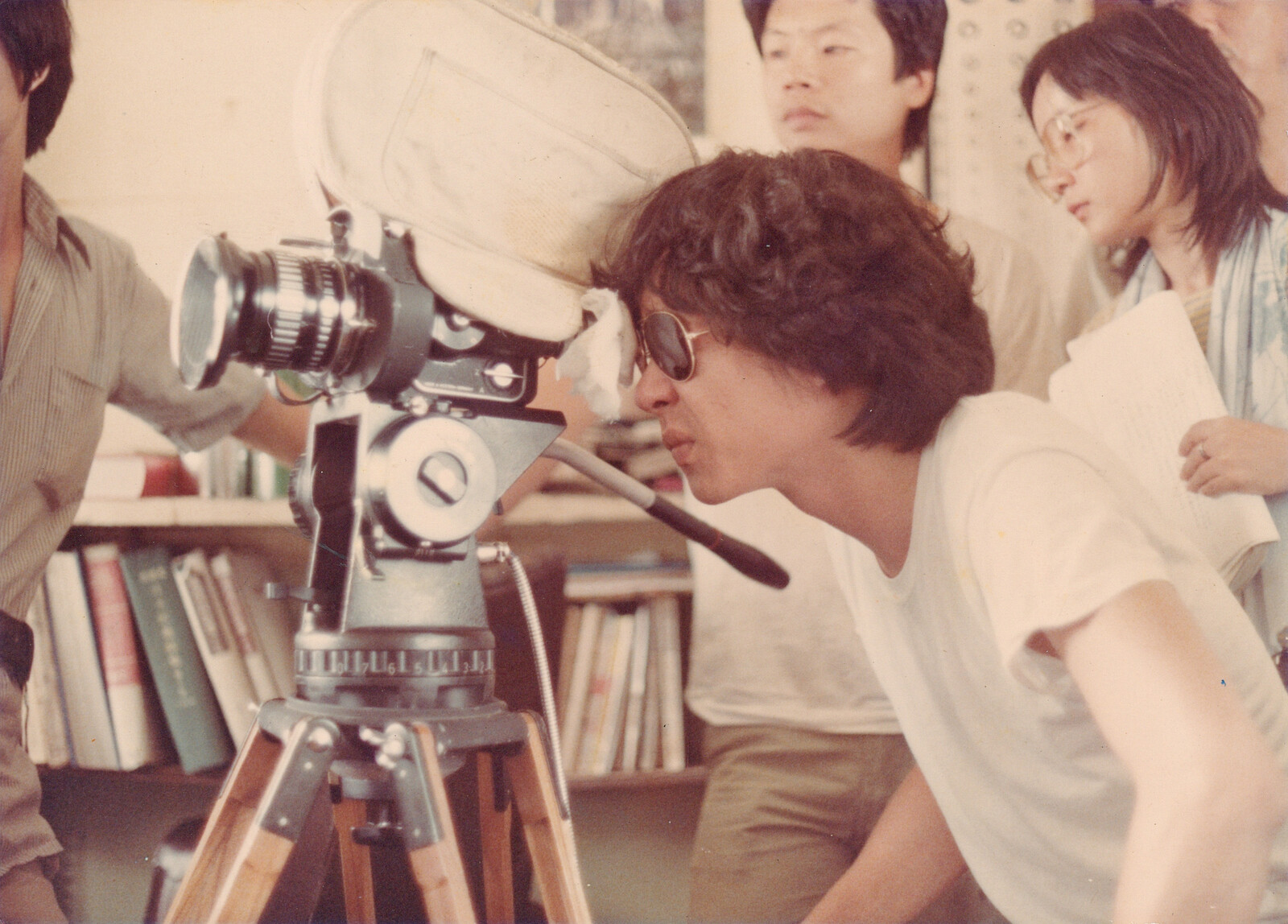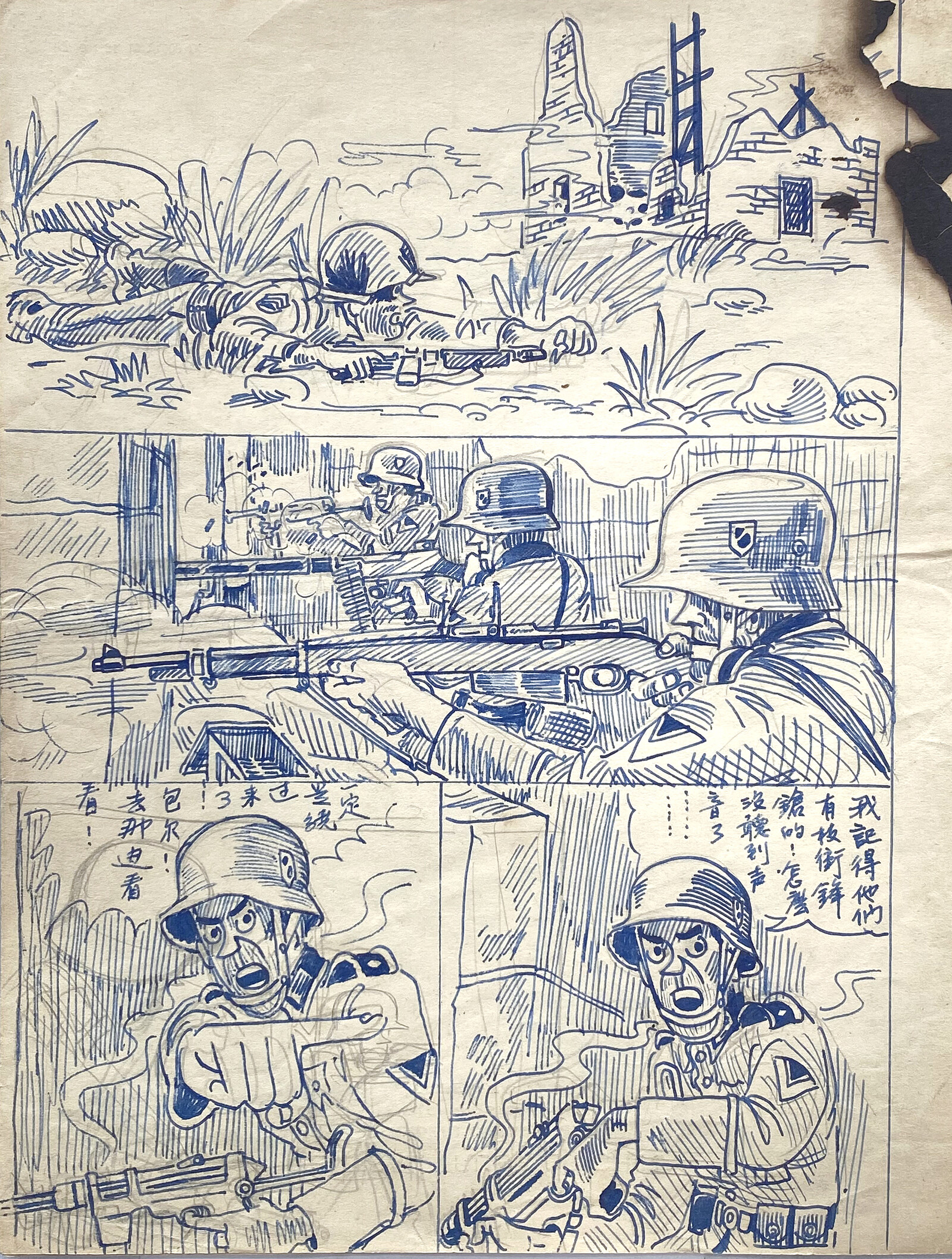July 22–October 22, 2023
Taiwan Film and Audiovisual Institute
A One and A Two: Edward Yang Retrospective, the most comprehensive retrospective to date of the internationally renowned film director Edward Yang, is co-organized by the Taiwan Film and Audiovisual Institute (TFAI) and the Taipei Fine Arts Museum (TFAM), with a film program and an exhibition presented at the two institutions from July 22 to October 22, 2023 respectively. The TFAI film program is curated by the TFAI curator Wood Lin, and features by far Yang’s most complete filmography, along with programs of specially themed screenings, while the TFAM exhibition is co-curated by the museum Director Jun-Jieh Wang and film scholar Song-Yong Sing, and leads the audience into Yang’s cinematic world through a contemporary art presentation. Amidst the precious literature and audiovisual archives that are on view for the first time, the exhibition invites all to trace Edward Yang’s lifelong creative trajectories and philosophy to collectively pay tribute to his incredible artistic achievements.
This project originated in 2019 when Edward Yang’s widow, pianist Kai-Li Peng, entrusted a collection of more than 10,000 film artifacts to the National Film Center (now the TFAI). The collection includes Yang’s filmmaking notes, project proposals, scripts, letters, production papers, and innumerous audiovisual materials, fully preserving the creative stages of the late director. The TFAI spent over three years to tease out, inventorize, and digitize the collection of artifacts, and invited the two curators to work with a research team to uncover Yang’s thinking system and creative codes from the massive archive to further multidimensionally delineate his creative context in the TFAM exhibition. Building upon the director’s brilliant cinematic works, as well as his lesser-discussed theatrical works and numerous unrealized projects, the exhibition reorganizes the diverse themes of Yang’s oeuvre through seven sub-themes, including “Childhood Through the Ages,” “A Somewhat Ambitious Adolescent,” “The Urban Explorer,” “The Polyphonic Practitioner,” “The Zesty Satirist,” “The Life Ponderer,” and “The Dream Entrepreneur,” to review Yang’s cinematic legacy from a fresh perspective.
“Childhood Through the Ages” traces the life journey of Edward Yang (1947–2007), leading the audience to navigate Yang’s persistence on childhood innocence and zealous pursuit of ideals. Yang’s belief drove him to respond to the world’s changes in different stages of his life. After he turned thirty, he even gave up his job as a microcomputer and systems designer in the US for many years, and determinedly returned to Taiwan to dive into film creation, hoping to convey his worldview and ideas through his films. “A Somewhat Ambitious Adolescent” centers on A Brighter Summer Day (1991), adapted from a true crime case in 60s Taiwan, to engage in one of Yang’s critical themes—“youth.” The film not only delves with innocent, romantic ideals and a sense of cynicism and defiance against the world, but also reflects the frustrations encountered by the new generation in the scary political and social atmosphere. In addition to props and work documents, such as character design, structure and causation of plots, scene dialogues, etc., this section also features precious and never-before-seen audition footages. Moreover, the audience can find the recurring theme of youth in scripts created in early 1980s when Yang just started directing, including The Wiz Kid and A Somewhat Ambitious Adolescent.
“The Urban Explorer” weaves together two threads: “city” and “women,” and revolves around several of Yang’s films, including Floating Weeds (1981), Expectations (1982), That Day, on the Beach (1983), Taipei Story (1985) and Terrorizers (1986), which portray urban women’s quest of the self, along with the reality, fantasy, loss and transformation encountered in the process. The audience can follow Yang’s meticulously annotated and transcribed handwritings and gain a glimpse into the various versions of each film from his manuscripts. Additionally, this section includes a seven-channel video installation, featuring re-arranged sequences taken from the abovementioned films and forming a filmic chapter echoing and interweaving Yang’s work. “The Polyphonic Practitioner” highlights the displacement of sound and image, or polyphonic soundscape created by layering different voices. Inspired by the New German Cinema director Werner Herzog, Yang determined to take filmmaking his lifelong vocation, and years after even became friends with Herzog. This section overlaps Yang’s nearly two-hour, emotionally rich recording of Herzog’s travel diary, Of Walking in Ice (1974), with sequences from That Day, on the Beach, layering out the integration of Yang’s life experience and creative work with sounds and images.
“The Zesty Satirist” focuses on the intricate relationship between theater and film after Yang’s mid-career. They are both part of mise-en-scène and serve as laboratories of ideas. In 1988, Yang began teaching “Film Basics” at the Department of Drama, National Institute of the Arts (now Taipei National University of the Arts). Later, he took in students as actors and crew members, which also influenced his subsequent creative methods. Yang’s lesser-known works as a theater director, such as the one-act play, Likely Consequence (1992), and the seven-act play, Growth Period (1993), laid the key groundwork for his so-called “new zesty satires” in A Confucian Confusion (1994)—a film that interrogates how Taiwan could break free from the squeeze between Confucian culture and domestic and foreign politico- economic situations at the turn of the century. Later on, Mahjong (1996) directly explored the spiritual crisis caused by Taiwan’s transition towards a highly capitalist society. Due to his attention to “Hong Kong’s handover”, he was invited by Zuni Icosahedron to Hong Kong, where he created two one-act plays: Brother Nine and Old Seven—A ‘97 Fantasy (1997) and King Lear—Experimental Shakespeare (2000). This section features the full documentations of four theatrical works and the scripts, together with other archival materials related to A Confucian Confusion and Mahjong, which form a comparison for the audience to further explore Yang’s creative path between theater and film.
“The Life Ponderer” begins with Yang’s persistent thinking about technology and humanity, and introduces his pioneering move in animation production in the late period of his career. Just as Yi Yi: A One and A Two… propelled Yang’s career to its peak, he launched an animated website as a platform to keenly echoed the world trend using digital media. Among the platform’s offerings were Lover’s Road (2001) and National Leaders Theater (2001) and others. His unfinished work The Wind (2002–2005) was further developed into a martial arts animated feature in the form of Northern Song scrolls, while Little Friend (2003–2007) is a story of true bond between a child and her animal. “The Dream Entrepreneur” reveals Yang’s highly energetic creativity, his unfulfilled ambitions, as well as his relentless and profound thinking on film through dozens of unfilmed scripts or outlines from Yang’s hands, such as Assassination, The Stunt, Little Five and Jack, among others, and Yang’s continuous writings and expressions on film concepts, such as “Twenty Talks by Director Yang” and “Architecture & Me and Seven Other Notes.” For this section, seven international filmmakers are invited to share their reminiscences of this unique director and the reverberations engendered by his cinematic legacy, including directors Werner Herzog, Olivier Assayas, Shunji Iwai, and Ryusuke Hamaguchi; film critic Tony Rayns; and actors Issey Ogata and Chang Chen.
Throughout his life, Yang responded to topics related to technology and culture, tradition and modern, with his innovative and interdisciplinary career of filmmaking, supplemented by his theatrical and animation works. With clear intents, he conveyed his criticisms and ideals through his works. This exhibition not only teases out Yang’s important achievements in terms of aesthetics and cultural and historical criticism, but also engages the audience in re-acquainting with this creator who sought to express universal values and embrace the world. The concurrent film program at the TFAI contains 3 themes, “A One: The Rational Soul”, “A Two: Edward Yang’s Top 10” and “Special Screenings”, inviting the audience to review Yang’s oeuvre, as well as his preferences and thoughts on films. A series of international forums will be held on July 22 and 23 at the TFAM, joined by major international filmmakers, scholars, respected Taiwanese screenwriters, actors and directors to discuss two main themes—“Film and Art Museums” and “The Film World of Edward Yang” Please stay tune to the websites and social media platforms of the TFAM and the TFAI for the latest updates on the exhibition, the film program and other events.










